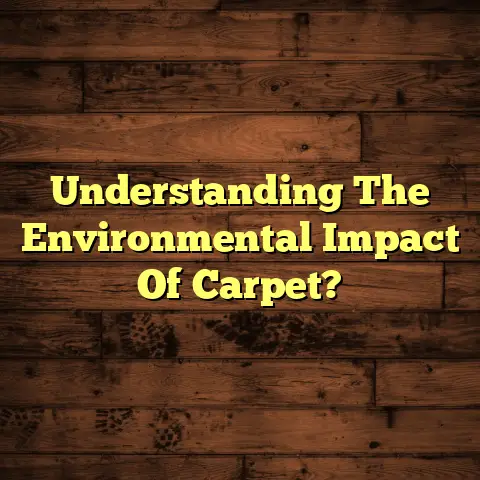Concrete Slab Cost: Get the Best Price! (3 Factors)
Would you rather invest in a durable concrete slab that lasts for decades, or save a few dollars now only to face costly repairs later?
I think we all know the answer to that one!
Choosing the right concrete slab isn’t just about the initial price tag. It’s about the long-term value, durability, and overall quality.
Let’s dive into what really drives the cost of a concrete slab and how to make sure you’re getting the best bang for your buck.
Understanding Concrete Slab Costs
So, what exactly is a concrete slab?
Simply put, it’s a level surface made of concrete.
You’ll find them everywhere, from foundations holding up your house, to flooring in your garage, to patios where you chill on summer evenings.
Think of it as the unsung hero of construction.
But how much does this hero cost?
Well, that depends on a bunch of things.
We’re talking material quality, labor, site prep – it all adds up, and understanding these factors is key.
Choosing the right price point isn’t just about saving money upfront. It’s about preventing headaches (and costly repairs) down the road.
Factor 1: Material Quality
Concrete isn’t just concrete, you know? There are different types, each with its own price point and purpose.
You’ve got your standard concrete, reinforced concrete with steel bars, and even decorative concrete with colors and patterns.
The type you choose will definitely affect the overall cost.
Standard Concrete: This is your basic mix, good for simple projects like walkways or small patios. It’s the most affordable option.
Reinforced Concrete: Think foundations and load-bearing structures. The steel reinforcement adds strength and durability, but also increases the cost.
Decorative Concrete: Stamped, stained, or polished, this option adds visual appeal. Expect to pay a premium for the added artistry and materials.
But here’s the thing: skimping on quality can be a huge mistake.
Using high-quality materials, including additives and reinforcements, can significantly impact the durability and lifespan of your slab.
I’ve seen firsthand what happens when people try to cut corners. Cracks, crumbling, and premature failure – it’s not pretty.
Think of it this way: would you rather pay a little more upfront for a slab that lasts 30 years, or save a few bucks now and have to replace it in 10?
Let’s look at an example.
Imagine you’re building a patio.
You could go with a basic concrete mix, but if you live in an area with harsh winters, that slab might not hold up so well.
The freeze-thaw cycle can wreak havoc on concrete, causing it to crack and crumble.
Investing in a higher-quality mix with additives that improve freeze-thaw resistance could save you thousands in repairs or replacement down the line.
I remember one client who insisted on using the cheapest concrete available for their driveway.
Within two years, it was riddled with cracks.
They ended up having to tear it out and replace it with a better-quality slab, costing them far more than if they’d done it right the first time.
Here’s a table summarizing the cost difference based on concrete type:
| Concrete Type | Average Cost Per Sq Ft | Longevity (Years) |
|---|---|---|
| Standard | $4 – $6 | 10-15 |
| Reinforced | $6 – $8 | 20-30 |
| Decorative (Stamped) | $8 – $12 | 25-35 |
These are estimates and can vary based on location and complexity.
(Source: Based on my professional experience and industry averages.)
Factor 2: Labor Costs
Okay, so you’ve chosen the right concrete mix. Now you need someone to actually pour and finish the slab.
This is where labor costs come into play.
And let me tell you, they can vary widely depending on where you live.
Labor rates are higher in some regions than others, so that’s something to keep in mind.
But even more important than location is experience.
Hiring experienced professionals versus attempting a DIY approach can make or break your project.
Sure, you might save some money upfront by doing it yourself, but concrete work is tricky.
It requires specialized knowledge and skills.
I’ve seen so many DIY concrete projects go wrong.
From uneven surfaces to improper finishing, the mistakes can be costly to fix.
Plus, concrete is heavy and working with it can be physically demanding.
Unless you’re a seasoned DIYer with experience in concrete work, I strongly recommend hiring a professional.
Here’s a breakdown of labor costs associated with different types of installations:
- Simple Slab (e.g., small patio): Labor costs might be around $2 – $4 per square foot.
- Complex Design (e.g., stamped concrete driveway): Labor costs could be $5 – $10 per square foot or higher.
- Foundation Slab: Due to the structural importance and complexity, labor costs can range from $8 – $15 per square foot.
These are just estimates, of course.
The best way to get an accurate idea of labor costs in your area is to get quotes from several different contractors.
Don’t just go with the cheapest option, though.
Consider their experience, reputation, and the quality of their work.
A good contractor will not only do a great job, but also advise you on the best materials and techniques for your project.
I always tell my clients that hiring a professional is an investment, not an expense.
It’s an investment in the longevity and quality of your concrete slab.
Factor 3: Site Preparation
You might think that site preparation is just a minor detail, but trust me, it’s crucial for a successful concrete slab installation.
Proper site preparation involves several steps, including excavation, grading, and drainage.
And each of these steps comes with its own costs.
Excavation: This involves removing any existing vegetation, topsoil, or other materials from the area where the slab will be poured.
The cost of excavation will depend on the size of the area and the amount of material that needs to be removed.
Grading: This is the process of leveling the ground to ensure a smooth and even surface for the concrete slab.
Proper grading is essential for preventing water from pooling on the slab and for ensuring that the slab is structurally sound.
Drainage: This involves creating a system to divert water away from the slab.
Poor drainage can lead to water damage, cracking, and other problems.
The cost of drainage will depend on the specific site conditions and the type of drainage system that’s required.
I can’t stress enough how important site preparation is.
Inadequate site preparation can lead to a whole host of problems down the line, such as cracking, settling, and even structural failure.
And fixing these problems can be incredibly expensive.
Think of it like building a house on a shaky foundation.
No matter how well you build the rest of the house, it’s going to be prone to problems if the foundation isn’t solid.
The same is true for concrete slabs.
If the site isn’t properly prepared, the slab is going to be vulnerable to damage.
I remember one job where the client tried to save money by skipping some of the site preparation steps.
They didn’t properly compact the soil before pouring the concrete, and as a result, the slab started to settle and crack within a few months.
They ended up having to tear out the entire slab and start over, costing them far more than if they’d just done the site preparation correctly in the first place.
Here’s a rough estimate of site preparation costs:
- Simple Site Prep (minimal excavation, basic grading): $1 – $3 per square foot.
- Complex Site Prep (extensive excavation, drainage work): $3 – $8 per square foot or higher.
Again, these are just estimates.
The actual cost will depend on the specific site conditions and the scope of the work.
Conclusion
So, there you have it.
The three key factors that influence concrete slab costs: material quality, labor costs, and site preparation.
Understanding these factors is essential for getting the best price while ensuring the long-term benefits of your investment.
Don’t be tempted to cut corners on quality or skip important steps in the process.
It’s always better to do it right the first time than to have to fix costly mistakes later on.
Weigh your options carefully, get quotes from multiple contractors, and choose the option that offers the best value for your money.
And remember, a durable, well-installed concrete slab is an investment that will last for years to come.





